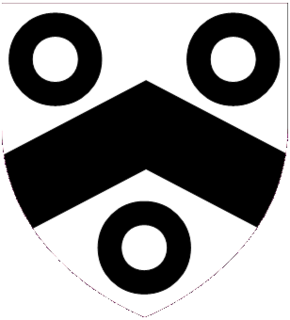John Scory was an English Dominican friar who later became a bishop in the Church of England.

William Talbot was an English Anglican bishop. He was Bishop of Oxford from 1699 to 1715, Bishop of Salisbury from 1715 to 1722 and Bishop of Durham from 1722 to 1730.
William Barons was the Bishop of London from 1504 to 1505. He was also Master of the Rolls of the Court of Chancery from 1502 to 1504.
William Knyvett (1779–1856) was a British singer and composer of the 19th century.
Thomas Catesby Paget or Pagett styled Hon. Thomas Catesby Paget from 1712 to 1714, and subsequently with the courtesy title Lord Paget, was an English writer and politician, who sat in the House of Commons from 1715 to 1727. He served in the household of King George II.

Samuel Bolton was an English clergyman and scholar, a member of the Westminster Assembly and Master of Christ's College, Cambridge.
Richard Reynolds (1674–1743) was an English bishop of Lincoln.

John Butler (1717–1802) was an English bishop and controversialist.
John Leng (1665–1727) was an English churchman and academic, bishop of Norwich from 1723.

William Jackson, referred to as Jackson of Exeter, was an English organist and composer.

Thomas Sanders Dupuis, Mus. Doc. (1733–1796) was a composer and organist of French extraction, born in London. He succeeded William Boyce at the Chapel Royal, and was regarded as one of the best organists of his day.
Edmund Goodenough (1786–1845) was an English churchman, dean of Wells from 1831.
Rev. Anselm Bayly was an English churchman and author of various works, chiefly of a theological and critical nature. He was also a singer and musical theorist, associated with the performance of works by George Frideric Handel.

Sir Thomas Walton was an English MP and Speaker of the House of Commons.
Mackenzie Edward Charles Walcott (1821–1880) was an English clergyman, known as an ecclesiologist and antiquarian.
John Randall was an English organist and academic.
Richard Bellamy (1743?–1813) was an English bass singer. One of the chief bass singers of his day, Bellamy was appointed a gentleman of the Chapel Royal 28 March 1771, and a lay vicar of Westminster Abbey 1 Jan. 1773.

Dr. Edward John Hopkins FRCO was an English organist and composer.
John Robinson was an English composer and organist; for many years organist of Westminster Abbey.







